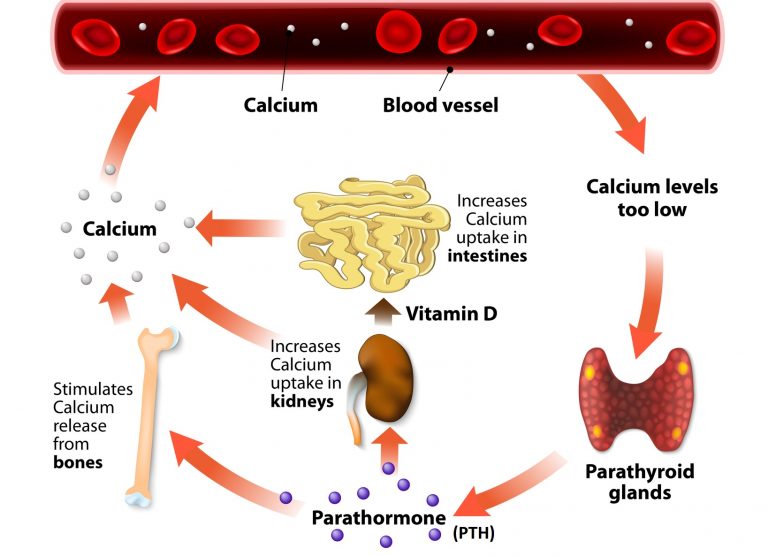
You wake tired. You forget words. You lose interest in food. You don’t feel deficient—you just feel off in ways you can’t always explain. Your labs say you’re fine. But your rhythm doesn’t agree.
It’s not always anemia. It’s not always thyroid. Sometimes, it’s Vitamin D—low enough to shift how your hormones speak to each other.
And because the signs don’t scream, they stay ignored.
Vitamin D doesn’t act alone—it works like a silent partner to other hormones
You think of bones. You think of sun. But Vitamin D doesn’t act alone—it works like a silent partner to other hormones. It’s a co-regulator. It helps activate receptors.
Estrogen, testosterone, cortisol—all respond differently when Vitamin D is low. It doesn’t lead, but it holds the map. When it’s missing, the signals get scattered.
And that miscommunication changes more than metabolism—it changes mood, memory, and cycle.
Estrogen needs Vitamin D to keep its rhythm
You notice your periods shifting. Or PMS hitting harder. Estrogen needs Vitamin D to keep its rhythm. When Vitamin D drops, estrogen can spike or crash.
This leads to irregular cycles. Bloating. Headaches. Fatigue. Sometimes even infertility. You treat the symptoms—but the signal was missing all along.
Restoring Vitamin D doesn’t fix everything. But without it, estrogen works without support.
Testosterone becomes unstable when Vitamin D is low
Men feel it in muscle. In mood. In sex drive. Testosterone becomes unstable when Vitamin D is low. Strength fades. Recovery slows. Clarity dulls.
You feel less sharp. Less present. But you don’t think of a vitamin. You think age. Or stress. Or work. But it’s often deficiency, not decline.
Vitamin D doesn’t replace testosterone. But it’s what helps testosterone stay predictable.
Thyroid hormones respond differently when Vitamin D is missing
Your thyroid might be working—but not effectively. Thyroid hormones respond differently when Vitamin D is missing. They circulate but don’t land. They show up in labs but not in life.
Your hands feel cold. Your skin dulls. You gain weight without reason. You’re not hypothyroid—but not regulated either.
That’s the space where Vitamin D makes itself known.
Cortisol becomes louder without Vitamin D to buffer it
Stress builds. And stays. Cortisol becomes louder without Vitamin D to buffer it. Your body holds tension longer. You react faster. You can’t downshift.
You feel wired at night. Heavy in the morning. You crave sugar. You forget words. But your stress isn’t situational—it’s chemical.
Vitamin D quiets inflammation. Helps regulate your nervous system. Keeps the panic from sticking.
Insulin resistance creeps in as deficiency stretches on
You eat well. You move. Still, blood sugar climbs. Insulin resistance creeps in as deficiency stretches on. Vitamin D helps cells listen to insulin. Helps glucose enter.
Without it, energy doesn’t land. Cravings rise. Fatigue follows. And your body works harder for less return.
You’re not overeating. You’re under-supported.
Even the gut listens differently when Vitamin D drops
You feel bloated. Off. Your digestion changes. Even the gut listens differently when Vitamin D drops. The microbiome shifts. Inflammation rises. Absorption slows.
Your mood dips. Your skin reacts. Your cravings change. Because the gut isn’t just about food—it’s about communication.
And Vitamin D holds the language of that exchange.
You can’t always measure balance in numbers
Your levels might be “within range.” But you still feel off. You can’t always measure balance in numbers. You measure it in how you wake. How you think. How you respond.
You feel slower. You lose interest. You stop recognizing your own energy. And that’s where the signal was hiding.
Low Vitamin D doesn’t look like illness—it feels like drift.
Restoring Vitamin D is about reconnecting scattered signals
You think of supplements. But it’s more than that. Restoring Vitamin D is about reconnecting scattered signals. It’s about recalibrating what hormones were trying to say.
The sun helps. So does food. But the real fix is attention—because deficiency isn’t loud. It just stays.
Until you no longer remember how normal used to feel.
